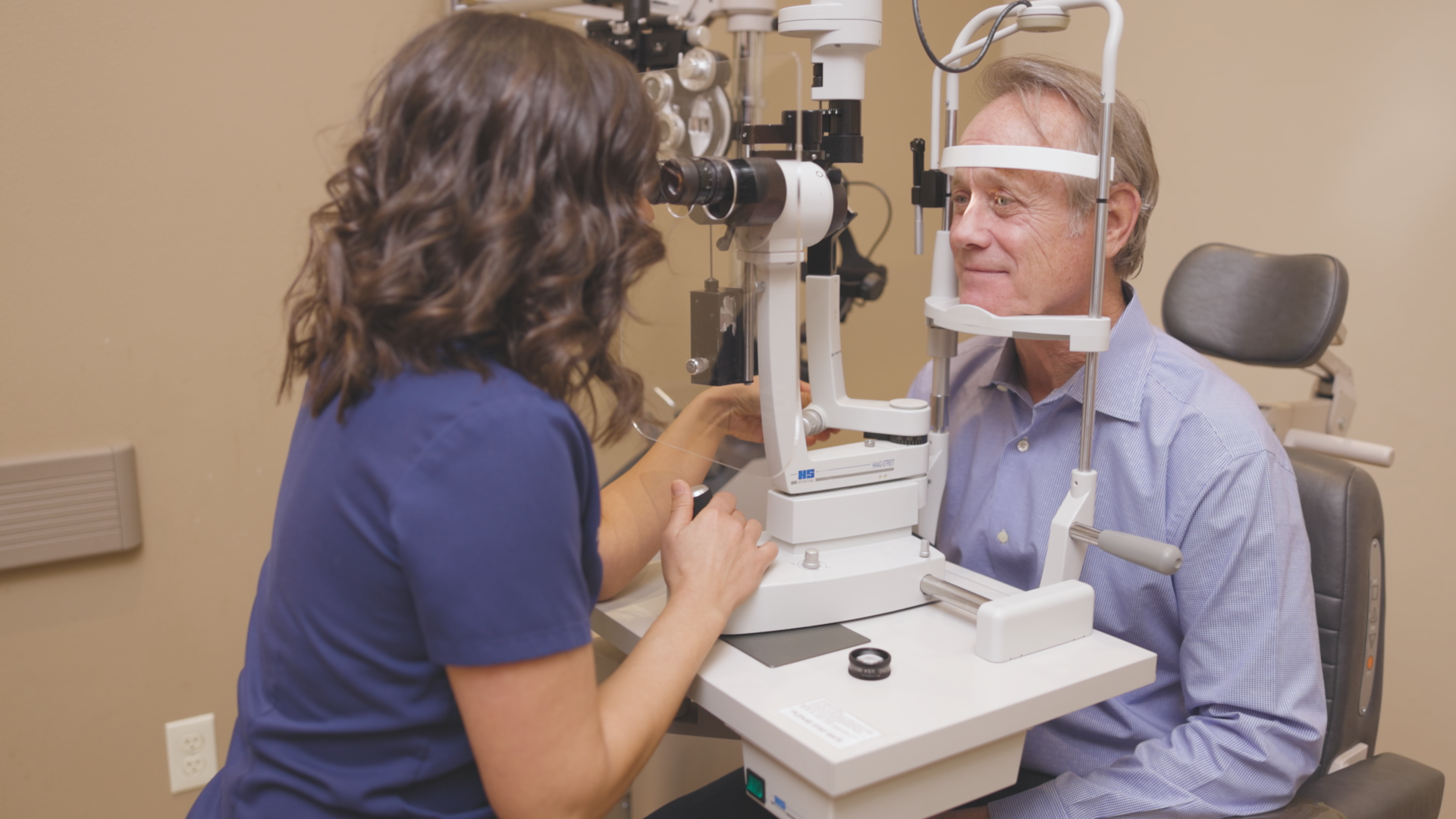How an Eye Doctor Can Help Prevent Vision Issues in Chino
Recognizing the Comprehensive Duty of an Eye Doctor in Modern Eye Care
In the progressing landscape of health care, the scope of an eye doctor's duty has actually considerably expanded, extending well beyond the confines of conventional vision correction. With advancements in technology and a boosting emphasis on precautionary treatment, eye doctors are indispensable in identifying and managing chronic eye problems, while additionally participating in early condition discovery. Their competence in sophisticated analysis techniques such as optical comprehensibility tomography is vital. But how do these obligations intersect with their function in advertising total eye wellness, and what does this mean for person outcomes in a collective health care environment?
Expanded Scope of Technique
In current years, the role of eye doctors has actually developed substantially, with numerous experts currently welcoming a broadened extent of practice that extends past conventional eye evaluations. Their obligations now encompass a broad array of services, consisting of prescribing drugs for ocular problems, handling chronic eye conditions, and doing small surgical procedures.
Additionally, eye doctors are now much more associated with collective treatment, functioning closely with ophthalmologists, primary treatment doctors, and other health care professionals to guarantee all natural person treatment. This interprofessional collaboration is essential in managing complex instances that require a multidisciplinary technique. In addition, optometrists are playing an essential function in public health campaigns, such as vision testings and eye wellness education and learning, intended at boosting community wellness results.
The broadened range of method for optometrists not just improves their capability to offer extensive care however likewise resolves the growing need for easily accessible and efficient eye care solutions, adding to total health care enhancements.
Early Condition Discovery
Early detection of eye illness is increasingly becoming a prime focus in the expanded function of optometrists. As key eye treatment service providers, optometrists are uniquely placed to recognize very early signs of eye conditions such as glaucoma, macular deterioration, diabetic person retinopathy, and cataracts. This crucial role is critical, as early diagnosis can substantially improve the management and prognosis of these problems, possibly avoiding vision loss and enhancing person outcomes.
Optometrists employ comprehensive eye exams to discover subtle changes in vision and eye health. The capacity to recognize early indicators of systemic wellness concerns, such as hypertension and diabetic issues, with eye indications further highlights the value of routine eye examinations.
Additionally, optometrists play a crucial role in client education and learning, highlighting the significance of routine eye evaluations as component of total health care. By promoting a positive technique to eye treatment, optometrists contribute considerably to public health, guaranteeing conditions are captured and handled efficiently prior to they can advance.
Advanced Diagnostic Strategies
Advanced diagnostic strategies have actually changed the practice of optometry, allowing experts to detect and check ocular conditions with extraordinary accuracy. Technologies such as optical comprehensibility tomography (OCT) give high-resolution, cross-sectional images of the retina, facilitating early discovery of conditions like glaucoma and macular degeneration.
Another important innovation is electronic retinal imaging, which captures comprehensive views of the retina utilizing high-definition cams. This technology is important in find out identifying changes in retinal structure over time, consequently aiding in the monitoring of conditions like diabetic person retinopathy. Visual field screening, enhanced by computer-aided systems, enables accurate mapping of an individual's field of view, essential in tracking and detecting glaucoma progression.
Corneal topography, another notable analysis device, generates topographic maps of the cornea's surface area. This is specifically useful in fitting contact lenses and preparing refractive surgery. These advanced diagnostic strategies jointly allow optometrists to offer positive, targeted treatment, ensuring much better person outcomes and strengthening their critical duty in eye wellness administration.
Managing Chronic Eye Problems
Handling persistent eye problems is a keystone of optometric treatment that calls for an extensive understanding of various ocular illness and their lasting implications. Eye doctors play an essential duty in diagnosing, surveillance, and handling conditions such as glaucoma, diabetic person retinopathy, and age-related macular degeneration. These problems, if left neglected, can cause substantial visual problems or blindness, highlighting the crucial significance of continuous care and monitoring.
Eye doctors employ a variety of diagnostic tools, including optical coherence tomography (OCT), aesthetic area testing, and fundus photography, to examine the progression of these persistent problems. By carefully checking changes in eye health, eye doctors can change therapy plans to minimize condition development. This may entail recommending medications, advising way of living modifications, or coordinating with eye doctors for medical treatments when required.

Duty in Preventive Care
Precautionary treatment is an essential element of optometry that focuses on keeping eye wellness and stopping the beginning of click for more info eye illness. Optometrists play a critical function in early discovery and prevention, employing routine eye exams to determine danger variables and refined modifications in eye health. Opticore Optometry. These assessments are not merely concerning vision modification but encompass a thorough analysis of eye features and structures, making it possible for the recognition of conditions such as glaucoma, cataracts, and macular deterioration at a beginning
Along with diagnostics, optometrists inform patients on way of living options that promote eye health, such as proper nutrition, UV security, and the relevance of normal eye check-ups. They recommend on the appropriate use digital gadgets to prevent electronic eye stress, a growing worry in the electronic age. Eye doctors additionally supply support on safety eyewear for work-related and leisure activities, mitigating the threat of injury.
Preventative eye care includes systemic wellness concerns that manifest in the eyes, such as diabetic issues and high blood pressure. By collaborating with other medical care professionals, optometrists add to alternative individual care, stressing the interconnectedness of ocular and systemic health. This proactive technique is vital in guarding aesthetic acuity and total health.
Verdict
Optometrists currently occupy a pivotal duty in contemporary eye treatment, characterized by a broadened scope that consists of detecting and taking why not look here care of persistent eye conditions, prescribing drugs, and doing small surgeries (Eye Doctor Optometrist). Their know-how in very early disease detection is boosted by innovative analysis methods such as optical coherence tomography and digital retinal imaging. By emphasizing preventive care and individual education, optometrists add significantly to total eye health and wellness, working together with various other healthcare professionals to make certain effective and thorough client results

In enhancement to diagnostics, eye doctors educate people on way of life choices that promote eye health, such as proper nutrition, UV defense, and the value of routine eye exams.Precautionary eye care extends to systemic wellness problems that show up in the eyes, such as diabetes mellitus and high blood pressure.Optometrists now occupy a crucial duty in modern-day eye care, defined by an increased scope that consists of detecting and managing persistent eye problems, suggesting medications, and executing small medical treatments.